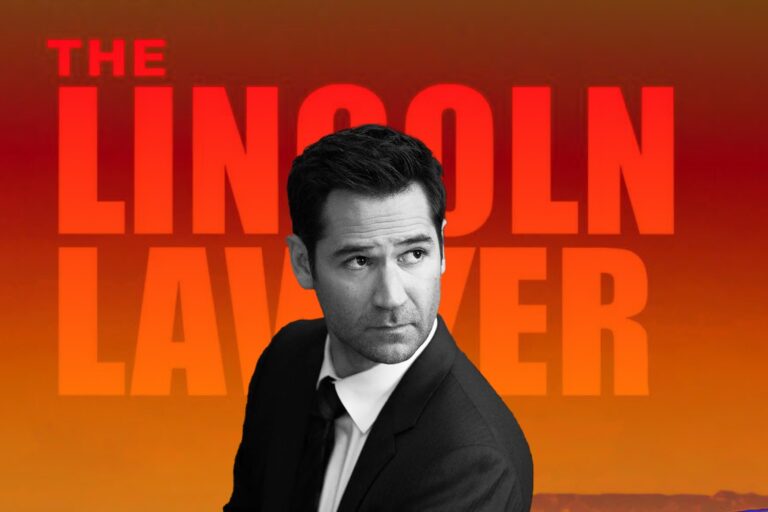The Rise of Boston: The Unique Entrepreneurial DNA for Success
Whether you wish to hit the ground running with your first office or plan to expand your startup’s geographic footprint with a second or third hub, landing the best city for your startup is more than pivotal. When it comes to ideal location options for rising entrepreneurs, undoubtedly several would postulate that the best city lies somewhere on the West Coast – or at the very least, outside of New England. Nevertheless, with its unparalleled pool of talent, iconic platform companies as well as an amazing community with a strong culture of giving back, Boston, Massachusetts, emerges as the fantastic startup hub.
“What awaits Boston is a renaissance, a pursuit of moonshot ambitious solutions to the world’s most pressing problems. If you’re building a business that fits that mold, Boston is the best city for you,” according to Matthew Wozny, an outstanding entrepreneur having graduated from Harvard Business School. Long gone were the times when Boston was deemed as an underestimated player in the startup scene. The recent years witnessed the marked rise of Boston for rising entrepreneurs, especially when the city earned the top spot among the top 25 startup hubs in America, based on a report by the U.S. Chamber of Commerce Foundation and startup incubator 1776.
Let’s read on to figure out specific factors that make the once-underestimated Boston become a premier startup hub of the universe as well as discover top outstanding startups that take notice of the area’s impressive growth and seized the opportunities handsomely.
The Rise of Boston For Rising Entrepreneurs: Key Drivers Revealed
“In Silicon Valley, you get this feeling that you have to be out there. But it’s not the place to be. If I were starting now, I would’ve stayed in Boston.”
– Mark Zuckerberg, Founder & CEO at Facebook
Speaking of where the most technological innovation is taking place, one geographical area that usually comes to mind first is likely to be Silicon Valley. In the light of the fact several tech giants such as Facebook, Google, Lockheed Martin, and Netflix choosing the area to house their corporate offices and innovation centers, there exists a great reason for that. Indeed, a large number of entrepreneurs hold a firm belief that they need to be there in order to thrive.
Boston often does not even factor in the conversation about technological development, at least not in the service industry. Until now!
Over the past few years, the city has become one of the blossoming innovation ecosystems of the country, with hundreds of startups now calling Boston their home. So, let’s explore how!
#1. Well-established Risk Capital Infrastructure
“When it comes to capital, Boston has it in droves,” stated Matthew Wozny in an interview with Underscore VC.
The promising growth trajectory of Boston has captured a great deal of attention from various investors. Staggeringly, in March 2020 alone, 60 startups saw investments of more than $1.5 billion, while April 2020 witnessed 54 startups receiving up to $3.5 billion.
Actually, monthly, investors are eagerly shelling out billions of dollars to back Boston’s entrepreneurial projects as well as build upon the spectacular growth the city has experienced in the past decade.
All of this increasingly tapped potential can be attributable to the history of Boston as the birthplace of modern risk capital infrastructure. In fact, Greylock, the first modern venture with an LLC structure and a myriad of limited partners was established in this city.
Whilst there came a time when VC firms and startups alike moved west, the tides are reversing as a move to Silicon Valley becomes less equitable, and the city that’s been dubbed “Title Town” for its athletic prowess is working to win a new title: The Best City for Startups.
The meteoric rise in the number of funds raised particularly reflects such a shift. To be more concise, since Underscore VC was formed, Material Impact, Pillar, and Flare Capital – all led by former North Bridge partners – have raised new funds; additionally, new key players –Founder Collective, NextView, Glasswing, Boston Seed, to name a few – pop up to meet growing risk capital demand from rising entrepreneurs. As a result, VCs – which once occupied Route 128 – have moved to and multiplied in the Financial District, Back Bay, Kendall Square, and the Seaport, forming a new cluster of capital in and around the heart of Boston.

Beyond a profit-driven decision, investment decision by VC firms (and even supportive entrepreneurs) manifests as a strong and respectable sense of giving back. Being helped and helping others – there is a perpetual cycle keeping Boston as a persistent, established springboard for the next big thing – whatever that may be.
#2. Gifted & Diverse Workforce
In addition to the solid capital infrastructure, unmatched talent makes Boston an invaluable goldmine for entrepreneurs. Given the future prospects are uncertain, there is every likelihood that this city remains a center for innovation for ages since it is home and neighboring to some of the world’s best and most productive research universities, including the world-renowned Harvard and MIT. In fact, this Boston is “being able to attract the best people, keep the best people, and empower the most people.”

Ironically, Massachusetts used to be known for its strict non-compete markets, hindering outward mobility for employees when they left a company. Yet, that utterly changed in 2018. With the Massachusetts Non-compete Law that took effect in October 2018, free labor mobility is now the de-facto standard, which is considered a leap forward that allows for worker mobility and puts Massachusetts in play with areas of the country.
At present, rather than leaving after obtaining their degrees, graduates of some of the world’s most prestigious universities stick around the city, resulting in one of the most educated and increasingly diverse workforces on the planet. To be specific, given that 2014 LinkedIn job migration data revealed that for every 100 jobs in Boston, about 8 folks left and took jobs in the Bay Area, this figure has since been cut in half, with only 3-4 as of April 2020.
Another super-appealing factor that makes Boston an ideal startup scene is that the city houses the world’s sixth-most diverse population, providing entrepreneurs with a potential talent pool that brings unique perspectives to empower businesses to appeal to a larger market. In fact, there exist a plethora of initiatives that are working to open two-way access between this pool and the startup ecosystem.
“The greatest minds in nearly every industry – of all backgrounds and demographics – have coalesced right here in Boston, making it the best city for entrepreneurs to recruit top talent.”
– Matthew Wozny, Harvard Alumni
#3. The Strong Presence of Various Iconic Platform Firms
Almost every city has at least one iconic firm, which is acclaimed for its monumental size, influence, and revenue. And once again, Boston gets recognized for its strong presence of numerous iconic platform companies.
Instead of consuming startups, an iconic platform company is going to spawn them. HubSpot could be illustrated as a great example of a company whose founders supported its former employees as they decided to pursue their own self-employed dreams, establishing such organizations as Crayon, Drift, and SaaSWorks.
Let’s cats a quick glimpse over the rest of Boston’s landscape, in fact, it’s populated by businesses that have made a name for themselves as – or, are on their way to becoming – iconic platform companies. Acquia, Amazon, Cybereason, Salesforce, Drift, Toast, TripAdvisor, Vertex Pharma, Wayfair – whether it’s a headquarters or one of dozens of international offices, all of these companies have a presence right here in Boston.

As afore-mentioned, rather than competing or consuming, Boston’s roster of prominent names only serves to benefit others in their proximity. Not only has such a concentration of corporate excellence seized the attention of several investors but this also formed a magnet for top-notch talent.
#4. Generous Funding for R&D
What should be particularly noted as regards Boston is a rare balance between respecting its past and looking towards its future. Throughout history, the companies that flourished in this city were typically those heavily investing time and resources into R&D, in which Polaroid and Raytheon stand as both poster child examples which cemented this best practice. In this day and age, the innovation-seeking effort is still alive and well.
Let’s take an example. Within Boston’s tertiary schooling landscape, top-tier universities have invested high expenditure into R&D, especially when it comes to research areas that are expected to perform a critical role in the foreseeable future. The Harvard Innovation Labs and MIT’s new Schwarzman College of Computing – with a strong focus on AI – are leading the pack in turning students into future tech founders. Therein also lies Boston’s current competitive advantage in R&D. Prestigious institutions throughout the city – namely The Allston Fund, The Engine, Sandbox, or the E14 – are in place to ensure that students’ promising ideas can turn into profitable ventures.

In addition to educational institutions, venture capitalists are also recognizing the city’s heavy R&D work. Particularly, in 2019, CARB-X did reiterate its pledge to invest up to $550 million in antibacterial R&D between 2016 and 2021, whereas the restaurant technology company Toast declared its intention to invest a whopping $1 billion in hardware and software R&D over five years following a $250 million round of funding.
Between these educational centers and forward-thinking VCs, Boston lead the efforts of establishing the indestructible infrastructure in place to drive and commercialize R&D from companies young and old within the area.
Eminent Players Within the Boston Startup Scene
With the given advantageous “success ingredients”, the Boston tech sphere has understandably closed out the decade with a massive bang. Beyond any doubt, the city is buzzing with start-up potential across a wide spectrum of technologies, from AI to cloud, fintech, and the internet of things. Let’s go explore the most outstanding names within hundreds of promising startups.
#1: LendBuzz

As a fintech company, LendBuzz aims to empower U.S. resident students and professionals to land the best loan opportunities for their needs.
One long-established notion hindering individuals from requesting a loan is the assumption that the process is going to be challenging and lengthy, especially for those who do not have a social security number. And this is where Lenbuzz comes into play. In addition to erasing these concerns, LendBuzz does not have high rates, which is great for people who do not wish to spend lots of money on interest fees. Furthermore, adopting this convenience-driven service, you will have to wait a long period during the approval process since you are going to get pre-qualified in just five minutes.
So, is there any special thing in LendBuzz’s technological approach? This tech startup works with a sophisticated data analysis platform that enables users to have the lowest rates for their loans. Rather than requiring or checking the credit history, LendBuzz checks other kinds of data, such as educational background, employment, savings, and potential earnings. One of the most attractive things about such a fintech company is that you are enabled to establish your own credit history for future transactions that do require this report.
#2: Marigold Health

In regards to the tech-based healthcare landscape, Marigold Health is well-recognized as one of the leading healthcare companies in Boston that leverages technology to heal patients suffering from substance use and mental illness.
One of the main problems that these patients come up against is that they just do not feel ready to get treatment, or they can’t afford to pay for it. Realizing such pain points, Marigold Health shows up as an alternative or a friendly help for them, in which the health-tech startup adopts support groups and AI to help people with a mental illness or under substance use treatment.
So, what does AI, as a technology platform, have to do with all this? Generally, Marigold Health deploys AI-empowered tools to understand the emotional sentiment of a conversation, thereby a behavior management team in Marigold Health can monitor and lead a support chat into a good path for a patient.
#3: Openly

Based in Boston, Openly emerges as a tech-enabled home insurance provider designed to empower rather than replace agents. The company was founded in 2017 by Ty Harris and Matt Wielbut and is backed by Gradient Ventures, Google’s A.I.-focused venture fund, Greenlight Re, PJC, and Techstars Ventures, in addition to other investors and partners.
Openly’s founders have deep roots in Boston as well as obtained firsthand experience across both the insurance and technology industries. Ty Harris, Co-founder and CEO, is an MIT alum and a credentialed actuary who previously served as Chief Product Officer at Boston-based Liberty Mutual. Matt Wielbut, Co-founder and CTO, once served as the VP of Technology at Goldman Sachs and ran a successful retail insurance agency. The duo founded Openly in 2017 and participated in the prestigious Techstars Boston accelerator program in 2018.
When it comes to Openly’s offerings, its first product is a premium homeowner insurance product tailored uniquely to customers who value broad, innovative, and responsive coverage. With Openly, customers can be granted a bindable quote on a highly-valued home with just three questions, markedly faster than the market norm. Besides, this interesting startup writes its policies on a comprehensive contract which is unique in the industry. In addition to its primary product line, Openly also will launch complementary products, such as automobile insurance, with a focus on simplifying and modernizing the process for consumers.
#4: coUrbanize

Raising a total of 2.4 million up to now, CoUrbanize is an online community engagement platform connecting real estate developers and municipalities with residents.
As a startup within the demanding real-estate sphere, CoUrbanize is designed to disrupt the way real estate professionals communicate and manage their projects. One of the most common issues that real estate firms can encounter while developing and operating a new project is misunderstandings with a community. Undoubtedly, any form of miscommunication will result in wasted time and money. coUrbanize was born to create a bridge between communities and the real estate company, which allows broader participation that will ultimately deliver a controlled and perfectly developed project.
#5: meQuilibrium

As one company wishes to fast track its success, it undeniably needs to have powerful, confident, and optimistic employees ready to accomplish the company goals. Notwithstanding that, occasionally, employees go through stressful moments and are not able to maintain optimal productivity or strike a work-life balance. meQuilibrium is the first digital platform formed to ignite and reinforce resilience among workers with the help of validated psychology and neuroscience professionals.
So, how about its working mechanism? Basically, the process will start with a simple assessment test with a view to measuring the stress levels and get to the root of a problem. Besides the role of diagnosing, this evaluation also offers impactful data-driven insights into a certain employee’s stressful profile, strengths, and vulnerabilities. Such a well-rounded assessment is carried out based on nutrition, work-life balance, sleep, and other crucial information. Automatically after finishing the test, a system assigns each user the activities to lower stress levels and improve productivity.
The Bottom Line
Despite its rich history in technology and innovation, Boston often gets overlooked by those in the startup scene – until now. There is a renewed entrepreneurial energy present throughout Boston and the entire region that is making Beantown a tech mecca in its own right. Driven by local successes at companies ranging from early-stage startups to established technology giants, Boston – not Silicon Valley or Alley – “boasts” a unique tech DNA and culture to nurture and ignite entrepreneurship.









